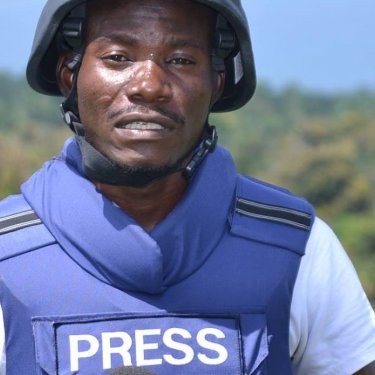Journalist flees after heavily-armed men burst into his radio station

Reporters Without Borders (RSF) calls on the authorities in the Democratic Republic of Congo to do what is necessary to identify and arrest three heavily armed men who stormed into a small radio station in the eastern province of Sud-Kivu and threatened its director. The authorities must also protect the station’s director, RSF said.
Based in Fizi, in the south of Sud-Kivi province, Radio Ngoma ya Amani (RNA) received the visit from three masked men armed with Kalashnikovs on the night of 27 September. After asking for the director, Byobe Malenga, and learning he was not there, they went to his home but he was fortunately not at home either.
The next day, Malenga – who is also the BBC’s Swahili-language correspondent in the region – alerted local security officials, one of whom simply advised him to “take precautions.” Fearing for his life, Malenga fled the area by canoe. When reached by RSF, Malenga said he has received many threatening messages, which RSF has been able to view. Some of the social media messages accuse him of reporting “the enlistment of Burundian refugees in armed groups.” Other messages, such as one from the DRC’s decentralization minister, Azarias Ruberwa, accuse him of being “in the service of the Mai Mai,” a militia active in the region.
“It is not right that the only response to a journalist facing death threats of this kind is an invitation to take care of his own safety,” said Arnaud Froger, the head of RSF’s Africa desk. “Combatting the armed groups operating in the eastern DRC needs effective support from the journalists and media covering them, who can broadcast messages that discourage enlisting in the militias.” Froger added: “We ask the authorities to guarantee this journalist’s safety and to conduct a thorough investigation to identify and locate those responsible for the threats. The creation of a dedicated alert and rapid response mechanism for protecting journalists – as RSF has been proposing for more than a year – is essential in order to improve the way cases are handled and to deter those seeking by every means possible to silence journalists and media that jeopardize their warlike or criminal designs.”
When reached by RSF, Col. Mukaz Davi, a Congolese army officer based in the region, said an investigation was “under way” but the armed men had not yet been identified.
This is the second time in the past few days that RSF has learned of a Congolese journalist being forced to flee or go into hiding after receiving death threats. Rozenn Kalafulo, the editor of Pole FM, a radio station based in the neighbouring province of Nord-Kivu, has been in hiding for the past week after learning that senior army officers had threatened to kill her.
A discourse that is much more favourable to press freedom has prevailed in the DRC since Félix Tshisekedi became president 21 months ago but, in the absence of reforms, abuses against journalists and media continue at the extremely worrying rate that was typical under his predecessor, Joseph Kabila, regarded by RSF as a press freedom predator.
The DRC is ranked 150th out of 180 countries in RSF's 2020 World Press Freedom Index.



